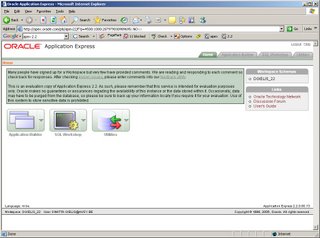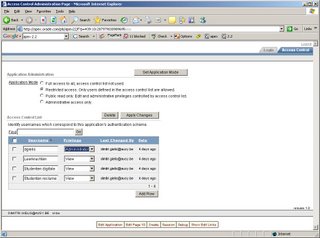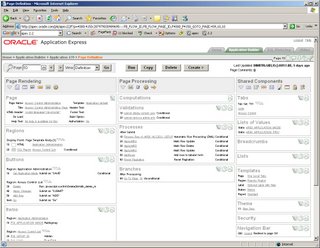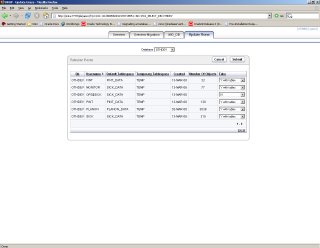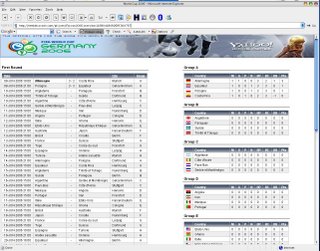 I received a nice Excel file which can store the scores of the World Cup 2006.
I received a nice Excel file which can store the scores of the World Cup 2006.As I really love APEX, I thought, let me try to make this "advanced Excel" in APEX.
My goal:
- use only the online version of APEX (http://apex.oracle.com)
- use only APEX, so no other tools
- have at least all "possibilities" of the Excel file
- make something quick and dirty ;-)
After two evenings of work, this is the result. (see also on picture)
You can update the scores of the games, all the rest is "automatically" (till the 1/8 finales).
Basically you have two procedures to calculate the score and to show the flags, and two pages, one to show the results and one to fill in the score of the games. I also made a third page, to upload the flags (little jpegs) into a blob column.
There's still room for improvement; table layout, add fk's, items/regions definition, add automatically calculation for the 1/4 finales and further, improve code etc.
You're free to download the source here. It includes the generation of the tables, the data and the APEX application.

